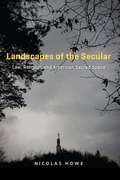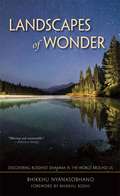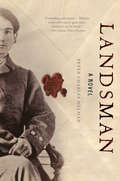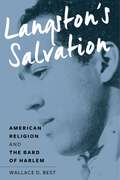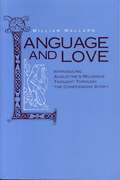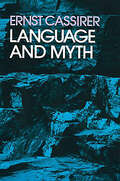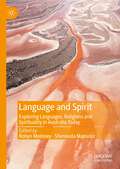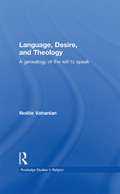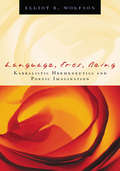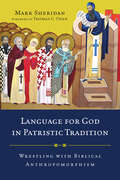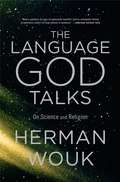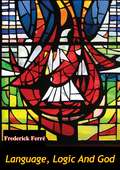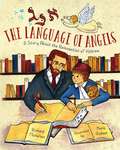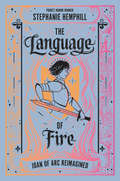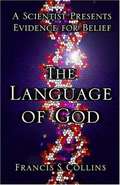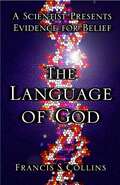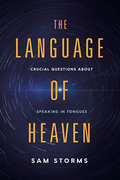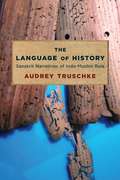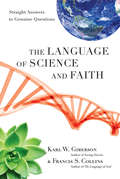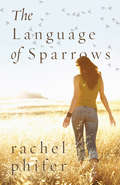- Table View
- List View
Landscapes of the Secular: Law, Religion, and American Sacred Space
by Nicolas Howe“What does it mean to see the American landscape in a secular way?” asks Nicolas Howe at the outset of this innovative, ambitious, and wide-ranging book. It’s a surprising question because of what it implies: we usually aren’t seeing American landscapes through a non-religious lens, but rather as inflected by complicated, little-examined concepts of the sacred. Fusing geography, legal scholarship, and religion in a potent analysis, Howe shows how seemingly routine questions about how to look at a sunrise or a plateau or how to assess what a mountain is both physically and ideologically, lead to complex arguments about the nature of religious experience and its implications for our lives as citizens. In American society—nominally secular but committed to permitting a diversity of religious beliefs and expressions—such questions become all the more fraught and can lead to difficult, often unsatisfying compromises regarding how to interpret and inhabit our public lands and spaces. A serious commitment to secularism, Howe shows, forces us to confront the profound challenges of true religious diversity in ways that often will have their ultimate expression in our built environment. This provocative exploration of some of the fundamental aspects of American life will help us see the land, law, and society anew.
Landscapes of Wonder
by Bhikkhu Bodhi Bhikkhu Nyanasobhano"To most of us there have come exceptional, unworldly moments, like unsuspected deeps in a stream, when we fell through appearances - fell through ourselves - into an intuition of majesty and wonder." - Bhikkhu Nyanasobhano in Landscapes of Wonder Landscapes of Wonder deftly transports the spirit of Buddhist contemplation off the cushion and into the natural world. With a lyricism and spiritual immediacy reminiscent of Thoreau and Emerson, in eighteen meditational essays Bhikkhu Nyanasobhano considers Buddhist themes through the prism of nature. The reflections captured in these satisfying literary explorations will appeal to all who appreciate contemplation of the natural world and our place in it.
Landsman: A Novel
by Peter MelmanAs fictional characters go, few embody such striking contradictions as cardsharp Elias Abrams: Jewish by birth, he joins the Confederate Army during the Civil War. Indeed, the question of duality runs deep through this novel — not only is Elias a Jew defending the right to oppress a people, but after he helps to commit a horrific crime, he finds himself unexpectedly overtaken by the power of love. Exploring themes of literature, redemption, atonement, and love, this novel delivers a startling dose of moral ambiguity, keen insights into the human condition, and unexpected moments that devastate with their casual simplicity.
Laney's Kiss
by Tracey Victoria BatemanHistorical Christian romance set on the Kansas prairie during the late 1870s.
Langston's Salvation: American Religion and the Bard of Harlem
by Wallace D. BestWinner of the 2018 Award for Excellence in the Study of Religion in Textual Studies, presented by the American Academy of Religion 2018 Outstanding Academic Title, given by Choice MagazineA new perspective on the role of religion in the work of Langston HughesLangston's Salvation offers a fascinating exploration into the religious thought of Langston Hughes. Known for his poetry, plays, and social activism, the importance of religion in Hughes’ work has historically been ignored or dismissed. This book puts this aspect of Hughes work front and center, placing it into the wider context of twentieth-century American and African American religious cultures. Best brings to life the religious orientation of Hughes work, illuminating how this powerful figure helped to expand the definition of African American religion during this time. Best argues that contrary to popular perception, Hughes was neither an avowed atheist nor unconcerned with religious matters. He demonstrates that Hughes’ religious writing helps to situate him and other black writers as important participants in a broader national discussion about race and religion in America. Through a rigorous analysis that includes attention to Hughes’s unpublished religious poems, Langston’s Salvation reveals new insights into Hughes’s body of work, and demonstrates that while Hughes is seen as one of the most important voices of the Harlem Renaissance, his writing also needs to be understood within the context of twentieth-century American religious liberalism and of the larger modernist movement. Combining historical and literary analyses with biographical explorations of Langston Hughes as a writer and individual, Langston’s Salvation opens a space to read Langston Hughes’ writing religiously, in order to fully understand the writer and the world he inhabited.
Language and Love: Introducing Augustine's Religious Thought Through the Confessions Story (G - Reference, Information and Interdisciplinary Subjects)
by William MallardThis is the first work to combine an introduction to Augustine's Confessions with a larger outline of his mature theology. Mallard provides guidance for reading the narrative Confessions (Books I–IX) and at the same time, by certain extensions and comments, reveals the three major topical divisions within Augustine's thought: creation, salvation, and the City of God. Mallard is able to do this because Augustine's affirmation of the good of Creation, his view of the human will and God's grace (and the nature of evil), his sense of a religious people's identity and their hope, and his view of faith and reason were all essentially in place at the time of the Confessions.Mallard argues that Augustine was not "in search of himself" in a modern sense but in search of a language of prayer, praise, and truth that would locate him within God's grace. That language turned out to be the language of Incarnation, which remains compelling and inviting today. As a classic work, the Confessions is a monument to its own time, but it has striking resonances for our own. Mallard's interpretation will challenge readers to begin working out their own. The Confessions endures because it is a story that illumines the stories of many, even to the present day. To analyze how it is like, and unlike, modern experiences is to exercise both mind and heart. In that respect, Language and Love is a kind of theological meditation on the Confessions testing out a horizon of belief. Mallard views Augustine as a master of the spoken word in an age of broken and abused language and the Confessions as a historic masterpiece of rhetoric. He contends that Augustine is the ancestor of many today who offer social and political hope through fresh rhetorical vitality.
Language and Myth
by Ernst CassirerIn this important study Ernst Cassirer analyzes the non-rational thought processes that go to make up culture. He demonstrates that beneath both language and myth there lies an unconscious "grammar" of experience, whose categories and canons are not those of logical thought. He shows that this prelogical "logic" is not merely an undeveloped state of rationality, but something basically different, and that this archaic mode of thought still has enormous power over even our most rigorous thought, in language, poetry and myth.The author analyzes brilliantly such seemingly diverse (yet related) phenomena as the metaphysics of the Bhagavat Gita, the Melanesian concept of Mana, the Naturphilosophie of Schelling, modern poetry, Ancient Egyptian religion, and symbolic logic. He covers a vast range of material that is all too often neglected in studies of human thought.These six essays are of great interest to the student of philosophy or the philosophy of science, the historian, or the anthropologist. They are also remarkably timely for students of literature, what with the enormous emphasis placed upon "myth" in modern literary speculation. This book is not superficial speculation by a dabbler, but a penetrating study by one of the most profound and sensitive philosophic minds of our time.
Language and Religion: A Journey into the Human Mind
by William DownesLanguage and Religion offers an innovative theory of religion as a class of cultural representations, dependent on language to unify diverse capacities of the human mind. It argues that religion is widespread because it is implicit in the way the mind processes the world, as it determines what we ought to do, practically and morally, to achieve our goals. Focusing on the world religions, the book relates modern cognitive theories of language and communication to culture and its dissemination. It explains basic features of religion such as the supernatural, the normative, abstract and ideal theological concepts such as 'God', and religious feeling. It develops a linguistic theory, based on how utterances are understood, of metaphysical and moral 'mysteries' and their key role in thought and action. It shows how such concepts gain strength in the light of their successful use, and when tempered by criticism, can also have genuine authority.
Language and Spirit: Exploring Languages, Religions and Spirituality in Australia Today
by Robyn Moloney Shenouda MansourThis edited book explores stories of linguistic and spiritual identity in the urban and rural Australian landscape. It is an innovative mix of thirty six personal narratives and eleven research studies, which together offer accounts of the intersection of languages, religion and spirituality in people’s lives. Teachers of Indigenous languages speak of the critical connection between language revitalization, the spirituality of Country, and well-being. Both new and long-established diaspora individuals speak of the often complex but vital joint role of language and faith in belonging and heritage. The new dimension which the book brings to multilingualism is relevant to all complex global societies. Language and Spirit is ideal for both the general reader interested in community languages and interfaith issues, and academics in global intercultural studies and Applied Linguistics study wishing to gain a nuanced insight into the Language and Spirit intersection.
Language and the Declining World in Chaucer, Dante, and Jean de Meun
by John M. FylerMedieval commentaries on the origin and history of language used biblical history, from Creation to the Tower of Babel, as their starting-point, and described the progressive impairment of an originally perfect language. Biblical and classical sources raised questions for both medieval poets and commentators about the nature of language, its participation in the Fall, and its possible redemption. John M. Fyler focuses on how three major poets - Chaucer, Dante, and Jean de Meun - participated in these debates about language. He offers fresh analyses of how the history of language is described and debated in the Divine Comedy, the Canterbury Tales and the Roman de la Rose. While Dante follows the Augustinian idea of the Fall and subsequent redemption of language, Jean de Meun and Chaucer are skeptical about the possibilities for linguistic redemption and resign themselves, at least half-comically, to the linguistic implications of the Fall and the declining world.
Language, Desire and Theology: A Genealogy of the Will to Speak (Routledge Studies in Religion)
by Noëlle VahanianThis interesting and provocative work develops a new theological approach to language in the light of contemporary critical theory.
Language, Eros, Being: Kabbalistic Hermeneutics and Poetic Imagination
by Elliot R. WolfsonThis long-awaited, magisterial study-an unparalleled blend of philosophy, poetry, and philology-draws on theories of sexuality, phenomenology, comparative religion, philological writings on Kabbalah, Russian formalism, Wittgenstein, Rosenzweig, William Blake, and the very physics of the time-space continuum to establish what will surely be a highwater mark in work on Kabbalah. Not only a study of texts, Language, Eros, Being is perhaps the fullest confrontation of the body in Jewish studies, if not in religious studies as a whole.Elliot R. Wolfson explores the complex gender symbolism that permeates Kabbalistic literature. Focusing on the nexus of asceticism and eroticism, he seeks to define the role of symbolic and poetically charged language in the erotically configured visionary imagination of the medieval Kabbalists. He demonstrates that the traditional Kabbalistic view of gender was a monolithic and androcentric one, in which the feminine was conceived as being derived from the masculine. He does not shrink from the negative implications of this doctrine, but seeks to make an honest acknowledgment of it as the first step toward the redemption of an ancient wisdom.Comparisons with other mystical traditions-including those in Christianity, Buddhism, and Islam-are a remarkable feature throughout the book. They will make it important well beyond Jewish studies, indeed, a must for historians of comparative religion, in particular of comparative mysticism.Praise for Elliot R. Wolfson:"Through a Speculum That Shines is an important and provocative contribution to the study of Jewish mysticism by one of the major scholars now working in this field."-Speculum
Language for God in Patristic Tradition: Wrestling with Biblical Anthropomorphism
by Mark SheridanLanguage for God in Patristic Tradition
The Language God Talks: On Science and Religion
by Herman Wouk"More years ago than I care to reckon up, I met Richard Feynman." So begins THE LANGUAGE GOD TALKS, Herman Wouk's gem on navigating the divide between science and religion. In one rich, compact volume, Wouk draws on stories from his life as well as on key events from the 20th century to address the eternal questions of why we are here, what purpose faith serves, and how scientific fact fits into the picture. He relates wonderful conversations he's had with scientists such as Feynman, Murray Gell-Mann, Freeman Dyson, and Steven Weinberg, and brings to life such pivotal moments as the 1969 moon landing and the Challenger disaster. Brilliantly written, THE LANGUAGE GOD TALKS is a scintillating and lively investigation and a worthy addition to the literature.
Language in Time of Revolution
by Benjamin HarshavThis book deals with two remarkable events--the worldwide transformations of the Jews in the modern age and the revival of the ancient Hebrew language. It is a book about social and cultural history addressed not only to the professional historian, and a book about Jews addressed not only to Jewish readers. It tries to rethink a wide field of cultural phenomena and present the main ideas to the intelligent reader, or, better, present a "family picture" of related and contiguous ideas. Many names and details are mentioned, which may not all be familiar to the uninitiated; their function is to provide some concrete texture for this dramatic story, but the focus is on the story itself.
Language, Logic And God
by Frederick Ferré"THIS BOOK is an attempt to fill the present striking need for an introduction to contemporary linguistic philosophy as it bears on theological discourse. Wherever I have gone, recently, among educated Christians in Britain and America, I have encountered profound curiosity--and a good deal of anxiety--concerning modern methods in philosophy as they relate to the logical nature and validity of theological affirmations. Similarly I have found many of my students in contemporary philosophy and in the philosophy of religion becoming deeply absorbed in the issues raised by a critical examination of theological speech. From both groups, the intellectually alert Christians and the thoughtful graduate and undergraduate students of philosophy and religion, I have been heavily bombarded with appeals for direction to some book which would (1) set forth the central issues and arguments concerning theological discourse for readers who have familiarity with traditional philosophy but who are relatively untrained in contemporary philosophical practices and (2) place into perspective the present state of philosophical and theological discussion in this area of burgeoning interest. To my frustration, I have had to answer such requests with the admission that no such book exists and with the promise that I would try, some day, to provide that book myself. In preparing this volume, therefore, I have done my best to keep those promises in mind."
The Language of Angels: A Story About the Reinvention of Hebrew
by Richard Michelson2018 Sydney Taylor Book Award2017 National Jewish Book AwardIn 1885, few Jews in Israel used the holy language of their ancestors, and Hebrew was in danger of being lost—until Ben Zion and his father got involved. Through the help of his father and a community of children, Ben modernized the ancient language, creating a lexicon of new, modern words to bring Hebrew back into common usage. Historically influenced dialogue, engaging characters, and colorful art offer a linguistic journey about how language develops and how one person's perseverance can make a real difference.Influenced by illuminated manuscripts, Karla Gudeon&’s illustrations bring Ben Zion—and the rebirth of Hebrew—to life.A compelling emotional journey — Publisher's WeeklyA lively introduction to the work of a Hebrew language scholar and lover—and his family — Kirkus ReviewsA perfect resource for religious school collections and public library language shelves — BooklistHebrew teachers and students in Jewish schools will welcome this gorgeous new picture book about how the language developed and the impact of one person's perseverance on an entire people — School Library Journal
The Language of Fire: Joan of Arc Reimagined
by Stephanie HemphillThe Language of Fire is a lyrical, dark, and moving look at the life of Joan of Arc, who as a teen girl in the fifteenth century commanded an army and helped crown a king of France. This extraordinary verse novel from award-winning author Stephanie Hemphill dares to imagine how an ordinary girl became a great leader, and ultimately saved a nation.Jehanne was an illiterate peasant, never quite at home among her siblings and peers. Until one day, she hears a voice call to her, telling her she is destined for important things. She begins to understand that she has been called by God, chosen for a higher purpose—to save France. Through sheer determination and incredible courage, Jehanne becomes the unlikeliest of heroes. She runs away from home, dresses in men’s clothes, and convinces an army that she will lead France to victory.As a girl in a man’s world, at a time when women truly had no power, Jehanne faced constant threats and violence from the men around her. Despite the impossible odds, Jehanne became a fearless warrior who has inspired generations.
The Language of God: A Scientist Presents Evidence for Belief
by Francis S. CollinsThe author presents a satisfying solution for the dilemma that haunts everyone who believes in God and respects science. Faith in God and faith in science can be harmonious and combined into one worldview. For Collins, science does not conflict with the Bible, science enhances it.
The Language of God: A Scientist Presents Evidence for Belief
by Francis S. CollinsDr. Francis Collins, head of the Human Genome Project, is one of the world's leading scientists -- yet he is also a man of unshakable faith in God and scripture. Dr. Collins has resolved the dilemma that haunts everyone who believes in God and respects science. Faith in God and faith in science can be harmonious -- not separately but together, combined into one worldview. For Collins, science does not conflict with the Bible, science enhances it. The Language of God makes the case for God and for science. Dr. Collins considers and dismisses several positions along the spectrum from atheism to young-earth creationism -- including agnosticism and Intelligent Design. Instead, he proposes a new synthesis, a new way to think about an active, caring God who created humankind through evolutionary processes. He explains his own journey from atheism to faith, and then takes listeners on a stunning tour of modern science to show that physics, chemistry, and biology can all fit together with belief in God and the Bible. The Language of God is essential for anyone who wonders about the deepest questions of all: Why are we here? How did we get here? And what does life mean?
The Language of Heaven: Crucial Questions About Speaking in Tongues
by Sam StormsWhat does the gift giver say about the gift He gave? This book will help you overcome the arguments, fears, and anxieties related to this gift. FEATURES AND BENEFITSShares the author&’s personal testimony and spiritual journey with speaking in tonguesExamines the history of this gift in the church for the past two thousand yearsInteracts with those who have denied that this gift is valid for today&’s churchSpeaks to the relationship between Spirit baptism, Spirit filling, and the gift of tonguesFew other issues have separated the church more than the issue of tongues. Sam Storms focuses on this controversial subject with his signature insights to theology and the gifts of the spirit. What does the gift giver say about the gift He gave? Storms seeks to bring balance to this subject in The Language of Heaven as he wrestles with this sensitive issue experientially as well as theologically. He ultimately provides a platform to allow God to speak for Himself as he addresses every text of Scripture on the subject and engages with every theological issue that speaking in tongues provokes. As a pastor, Storms knows the questions that the typical churchgoer is asking and provides clear and accessible answers to them all, including:Is the gift of tongues for every Christian or only some?How does the gift of tongues operate in the life of the believer individually in private practice?How does the gift of tongues operate in the corporate assembly of God&’s church?How is the Christian edified and strengthened by praying in tongues?How do I pray for the gift and prepare my heart to receive it?You can overcome the arguments, fears, and anxieties related to this spiritual gift. Remember, God gives only good gifts, and it is His intention that His church utilize all that He has provided so that we might experience all that He is.
The Language of History: Sanskrit Narratives of Indo-Muslim Rule
by Audrey TruschkeFor over five hundred years, Muslim dynasties ruled parts of northern and central India, starting with the Ghurids in the 1190s through the fracturing of the Mughal Empire in the early eighteenth century. Scholars have long drawn upon works written in Persian and Arabic about this epoch, yet they have neglected the many histories that India’s learned elite wrote about Indo-Muslim rule in Sanskrit. These works span the Delhi Sultanate and Mughal Empire and discuss Muslim-led kingdoms in the Deccan and even as far south as Tamil Nadu. They constitute a major archive for understanding significant cultural and political changes that shaped early modern India and the views of those who lived through this crucial period.Audrey Truschke offers a groundbreaking analysis of these Sanskrit texts that sheds light on both historical Muslim political leaders on the subcontinent and how premodern Sanskrit intellectuals perceived the “Muslim Other.” She analyzes and theorizes how Sanskrit historians used the tools of their literary tradition to document Muslim governance and, later, as Muslims became an integral part of Indian cultural and political worlds, Indo-Muslim rule. Truschke demonstrates how this new archive lends insight into formulations and expressions of premodern political, social, cultural, and religious identities. By elaborating the languages and identities at play in premodern Sanskrit historical works, this book expands our historical and conceptual resources for understanding premodern South Asia, Indian intellectual history, and the impact of Muslim peoples on non-Muslim societies.At a time when exclusionary Hindu nationalism, which often grounds its claims on fabricated visions of India’s premodernity, dominates the Indian public sphere, The Language of History shows the complexity and diversity of the subcontinent’s past.
The Language of Science and Faith: Straight Answers to Genuine Questions
by Francis S. Collins Karl W. GibersonThe Language of God,
The Language of Sparrows
by Rachel PhiferBrilliant and fluent in too many languages to count, 15-year-old Sierra Wright can't seem to communicate what is important to her in any language. Though April Wright stubbornly keeps an upbeat attitude about her daughter's future, she has let her own dreams slip away. Just across the bridge lives old Luca, scarred from his time in a Romanian gulag years before. Though he has seemingly given up on people, Sierra is drawn to him despite his prickly edges.No one else is comfortable with the unpredictable old man spending time alone with Sierra, not even Luca's son. Yet it is this unconventional relationship that will bring two families together to form friendships and unearth their family stories, stories that just might give them all the courage to soar on wings toward a new future. ---"With The Language of Sparrows, Rachel Phifer creates an engaging, tender tale of the hope that can arise when painful secrets are brought into the light. Poignant backstory and multifaceted characters draw the reader in and keep the pages turning." Amy K. Sorrells, award-winning author of How Sweet the Sound"The Language of Sparrows, by Rachel Phifer, is a beautifully written story of betrayal and an unlikely friendship, forged from understanding. Novel Rocket and I recommend it. It's a perfect book club selection or an end-of-summer read." Ane Mulligan, president of Novel Rocket
The Language of Sycamores
by Lisa WingateFrom the book jacket: karen Sommerfield has been hiding from the big questions of life- immersing herself in a high-pressure job, ignoring the emotional distance in .her marriage, avoiding memories of a sudden miscarriage and a bout with cancer that stole her chance of ever having children. She's convinced herself that money, power, and success can give her the sense of purpose she yearns for...until the day the company downsizes her out of a job and the doctor tells her that the cancer may be back. It's a double blow that would send anyone reeling. It sends Karen on a search for herself in the last place she ever thought to look: Grandma Rose's old farm, where her sister has made a seemingly perfect life. As Karen's hectic schedule falls away, she opens up to the unexpected-a lonely child in need of nurturing and newly discovered family members with insights into the past. In the quiet of the Missouri Ozarks, she once again hears the call of the river and the whispers of the sycamore leaves. In their soft, secret language, she will discover answers, a forgotten purpose, and a joy to make her life complete.
